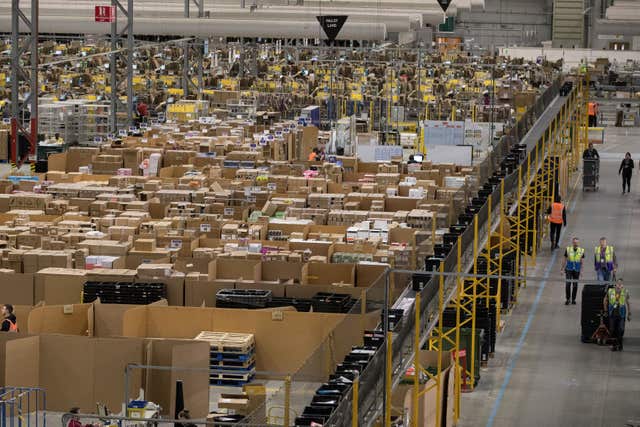
Simon Marks 4pm - 7pm
18 February 2021, 18:54

The chief executive said an online sales tax aimed at Amazon would not work but experts warned other warehouse users could suffer.
Business rates for retailers on the high street should be cut by 35% with the commercial property tax increased for online rival warehouses instead, according to the chief executive of Next.
Lord Simon Wolfson said the current system places an unfair burden on bricks and mortar stores and said the tax, which is calculated on the value of each commercial premises, has failed to consider falling property prices in shopping destinations during the pandemic.
He told BBC News he was against an online tax – something rival retailers have called for as online sales soar during the pandemic – but said an increased tax on warehouses could be a solution.

Next has a significant online presence and would be hurt by an online levy of around 2%, which is what has been proposed previously.
However, the plan risks backfiring on thousands of other warehouse users, including manufacturers, with experts suggesting the Next boss has misread the data.
Retailers have enjoyed a business rates tax holiday during the pandemic to help survive the various lockdowns and restrictions.
They have called for an extension to the current holiday, which ends next month, and have spent several years urging the Government to overhaul the entire rates regime.
Chancellor Rishi Sunak has resisted calls to announce an extension to the tax holiday, however, said he intends to update businesses at the budget next month just before the current tax break ends.
Lord Wolfson said: “I think we’re at quite a pivotal place on the high street history… we’ve had a dramatic drop in the value of retail properties because sales have dropped so far and many retailers are on the edge of administration.
“For those companies particularly if they go into liquidation, whether or not their new owners decide to take them on and keep those shops on, or close them, will depend on both the rents and the rates that are being charged.”
“So over the next year or two, having the rates set at a level that is economic and fair is going to make an enormous difference to how many shops stay open in the short term. And it would be a shame for a huge number of shops to shut unnecessarily because rates are too high.”

He explained: “In-store sales at Next have gone down 25% since 2015 but our rates on those properties have gone up 9%. They have become unfair because they no longer reflect the value property against which they’re charged.”
The Next boss, who recently joined the board of online food delivery platform Deliveroo, added he was against the online tax idea because “ultimately the consumer will pay the price”.
However, business rates tax specialist, Robert Hayton, UK president of property tax at the real estate adviser Altus Group, said the idea that taxes on warehouses could make up a shortfall was a misreading of the data.
He explained: “If this move is intended to push the rates burden onto online retailers then it is deeply misguided. Online retailers represent only a small part of the warehouse occupier base. These proposals will be devastating for UK manufacturing.”
Whilst there are 260,000 warehouses in total with rates liabilities of around £4.5 billion before any discounts, these include around 100,000 stores, lock up type properties and small general industrials and warehousing space across all sectors of the economy.
Targeting the 1,395 “super sheds” used by Amazon and others would also fail to create enough of a return to make up any shortfall in the annual £30 billion rates receipts, he added, with only a small fraction used by online-only retailers currently.